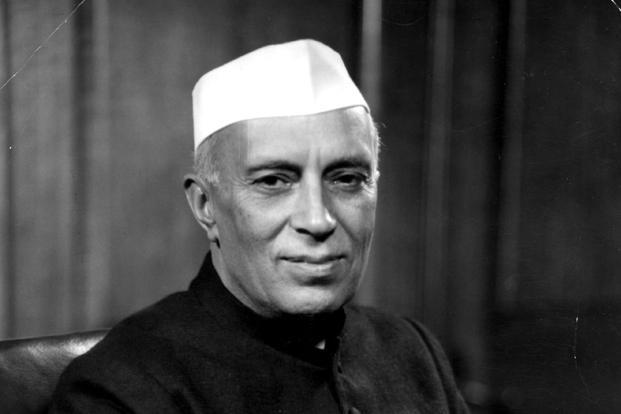Centre Replaces Dissenting NNML Soceity Members
November 6, 2018 | Expert Insights

The Indian Government replaced 4 members of the Nehru Memorial Museum and Library Society. The members who were replaced had previously opposed the governments decision to add a Museum for Prime Ministers to the campus, believing it would dilute the legacy of India’s first prime minister.
Background
The Nehru Memorial Museum and Library (NMML) is a memorial to Jawaharlal Nehru, India’s first prime minister who is often referred to as the architect of modern India. It is housed in the historic Teen Murti House campus located south of Rashtrapati Bhavan in New Delhi, the capital city of India.
Designed by Robert Tor Russel and built in 1929-30 as part of Edwin Lutyens' imperial capital, Teen Murti House was the official residence of the Commander-in-Chief in India. In August 1948, after the departure of the last British Commander-in-Chief, Teen Murti House became the official residence of independent India's first Prime Minister, Jawaharlal Nehru, who lived there for sixteen years until his death on May 27, 1964. Soon after, the Government of India decided that the Teen Murti House should be dedicated to him and house a museum and a library.
On Jawaharlal Nehru's 75th birth anniversary on November 14, 1964 Dr. Sarvapalli Radhakrishnan, President of India, formally dedicated the Teen Murti House to the nation and inaugurated the Nehru Memorial Museum. Founded as an autonomous institution, the Nehru Memorial Museum and Library (NMML), is dedicated to the objective of promoting advanced research on Modern and Contemporary India.
On 1 April 1966, the Government set up the Nehru Memorial Museum and Library Society to manage the institution, which has today emerged as a place of pilgrimage for the Indian masses on the one hand and as a premier research centre and a forum for intellectual activity on the other.

Analysis
The Central government has replaced three members of the Nehru Memorial Museum and Library (NMML) society, accepted the resignation of another, and approved four new members. The new appointees have replaced eminent personalities like academic Pratap Bhanu Mehta and economist Nitin Desai, who had strongly opposed the Centre’s move to set up a Museum for Prime Ministers within the Teen Murti premises just a few months ago. Teen Murti is closely linked with the legacy of the first Prime Minister and Congress leader Jawaharlal Nehru.
Of the four new faces on the board, the one which appears to have irked the Congress the most is Goswami’s, whom party spokesperson Sanjay Jha described as a “religious bigot, who regularly spews hatred, spreads fake news and polarises society”. Accusing Goswami of being a BJP-RSS “mole masquerading as a TV anchor”, Jha tweeted that he would be sacked as soon as Congress wins the 2019 polls.
The move to set up the Museum for Prime Ministers had gained traction after Mahesh Rangarajan, who was appointed by the UPA government, resigned in 2015 and retired IAS officer Shakti Sinha who had served in the PMO under Atal Bihari Vajpayee, took his place. Sinha had also served as the director of India Foundation, a think-tank aligned to the Rashtriya Swayamsewak Sangh.
Mehta had opposed Sinha’s appointment and resigned as an executive council member in protest. Desai had also opposed the shortlisting of Sinha for the post.
When the Executive Council decided to amend the memorandum of association (MoA) of the NMML last year, members like Desai had opposed the idea.
He had submitted in writing that Nehru “represents a link between the freedom struggle and early years of independence and that his contribution to our evolution as a nation is qualitatively different from that of his many successors” and advocated the need to reject the proposed amendments. He had also demanded that Nehru’s successors be commemorated in a separate institutional context.
Thereafter, there were fireworks at a NMML board meeting in July this year. During the meeting, chaired by Union home minister Rajnath Singh, senior Congress leaders Jairam Ramesh, Mallikarjun Kharge and Karan Singh, historian Nayanjyot Lahiri, economist Nitin Desai and B.P. Singh had also opposed the idea to set up the Museum of Prime Ministers within the Teen Murti complex. They demanded that NMML retain its original mandate of preserving memorabilia and personal objects related to Jawaharlal Nehru.
Counterpoint
According to NMML director Shakti Sinha, ”The sense was that we need people who are grounded in modern Indian political history, political development, how policymaking is done at the top, how Indian democracy works at the top. The people selected, I think, meet the requirements on that," said NMML director Shakti Sinha, commenting on the new appointees.
On Goswami's appointment, Sinha said, "Arnab Goswami is an important political commentator."
Assessment
Our assessment is that this administrative change is another instance of political differences influencing academia in India. We believe that the government’s dismissing members of an autonomous board is part of a troubling pattern of using it’s influence to override dissenting opinions.








Comments